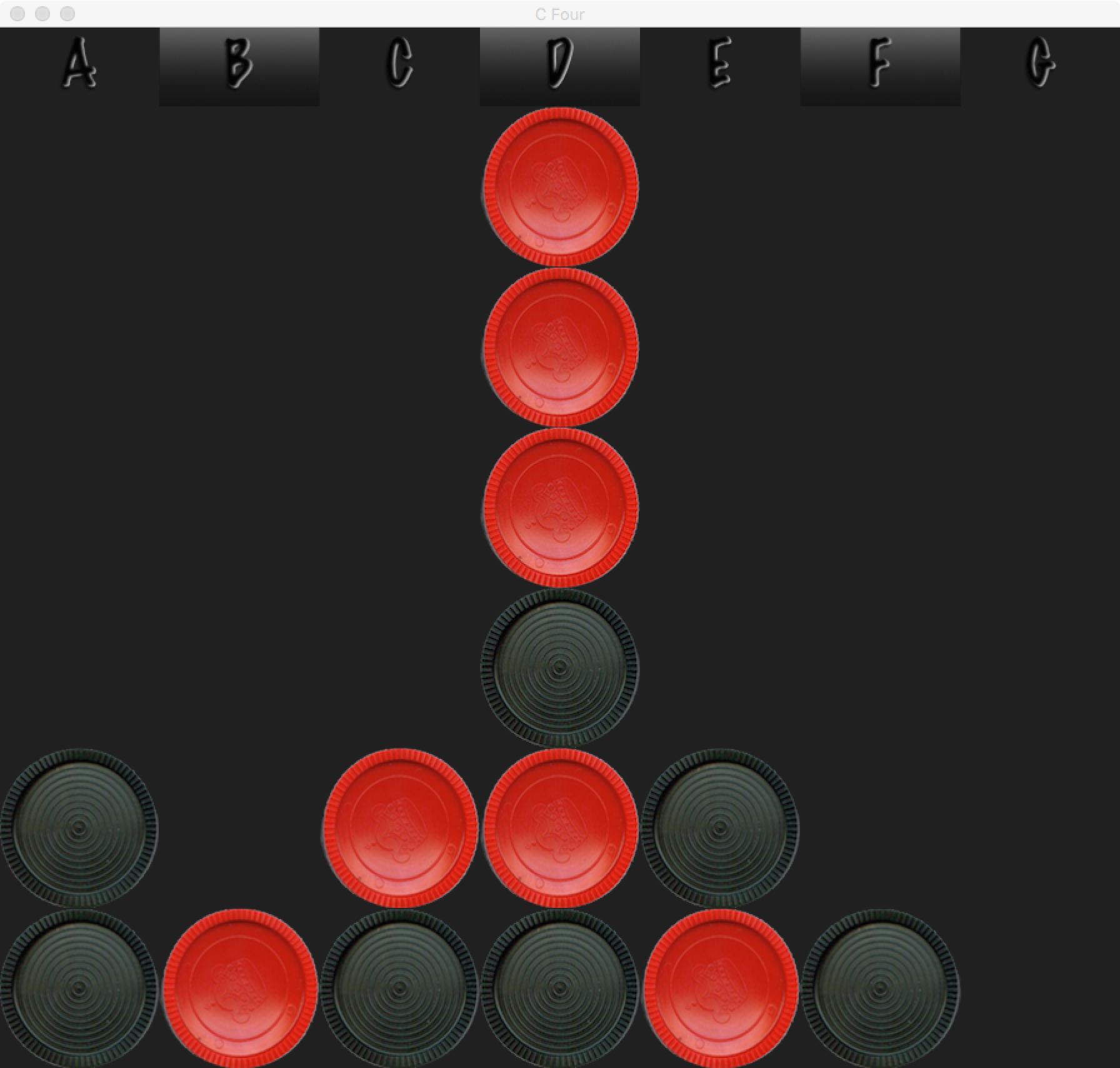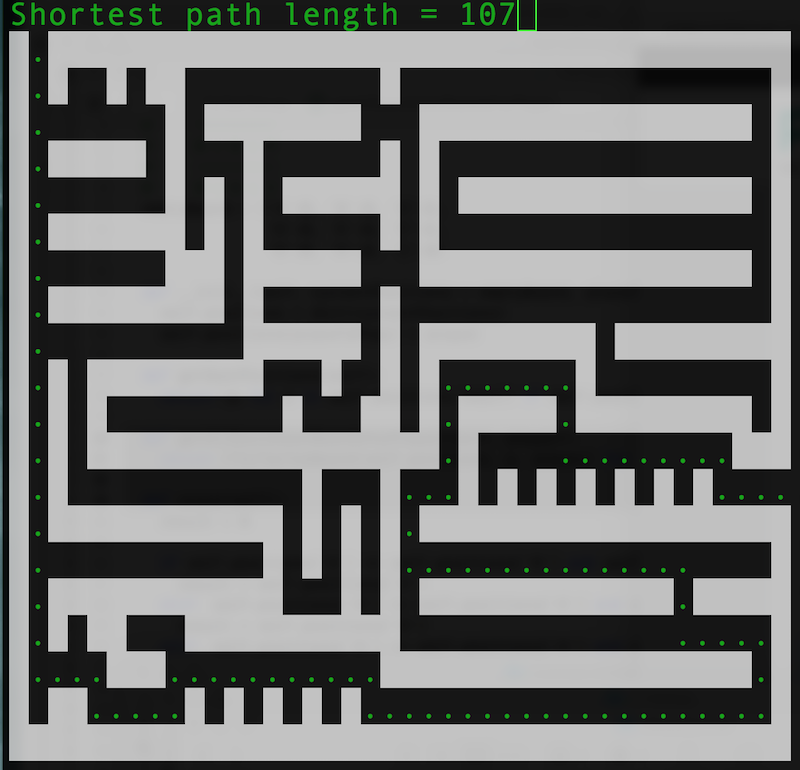A MiniMax algorithm is a recursive algorithm for choosing the next move in any two-player game where players alternate turns. It is guaranteed to produce a computer opponent who plays flawlessly (if you are willing to wait long enough between moves for the computer to "think")
From Wikipedia: Alpha–beta pruning is a search algorithm that seeks to decrease the number of nodes that are evaluated by the minimax algorithm in its search tree. It is an adversarial search algorithm used commonly for machine playing of two-player games (Tic-tac-toe, Chess, Go, etc.).
This directory contains a Python implementation of the AlphaBeta algorithm along with two different games that both use the same algorithm: TicTacToe.py and Connect4.py. Both games should be run from a terminal. They display the game boards with ASCII art. The TicTacToe Computer Opponent never makes a mistake. The Connect4 Computer opponent plays well but has limited foresight, so it can be beaten by expert players.
To use the AlphaBeta algorithm implemented here for different games, all you have to do is create a Python class to encapsulate the "game board" for you game. You Board class must provide only two methods for use by AlphaBeta:
def getAllSuccessorBoardsForPlayer(self, player):
""" """
def score(self):
""" """The player argument to getAllSuccessorBoardsForPlayer() has the value -1 for the minimizing player and 1 for the maximizing player. getAllSuccessorBoardsForPlayer() must return a list of Board instances, one for each game board configurations that the specified player could create from the current state of the board.
The score() method must return an integer score for the current board state. If the maximizing player has won, the returned score must be 1. If the minimizing player has won, the returned score must be -1. If neither player has won, the score returned should be between -1 and 1 with a value based on how much the board favors one player or the other.
Use one of the following commands to play the games:
python TicTacToe.py~ or ~
python Connect4.pyThis directory contains a Python Connect4 game with a smart computer opponent and a graphical display made using Cocos2D.
If you already have Cocos2D installed run the game with
python Connect4.pyIf you don't have Cocos2D already, it can usually be installed via
python -m pip install cocos2dHow can computer controlled characters navigate within a game world? Path Finding comprises a set of algorithms to find the lowest cost [in time or distance or both] route between two places in a game world. It may be necessary to navigate around obstacles or go backwards. There may not be any route: you can't get there from here.
The MazeSolver directory contains a C++ code to solve mazes. The algorithm finds the shortest route from the entrance of a maze to the exit. The algorithm reports when there is no route to the exit.
Breadth first means that the algorithm considers very position that is three steps away from the entrance before considering any positions that are four steps away. Then it considers all positions that are four steps away before any positions that are five steps away... and so on. It is guaranteed to find the shortest path to an exit even when there are multiple exist because by definition, the algorithm won't even consider and exit that is twenty steps away if there is one that is only nineteen steps away.
Compile the program with
c++ *.cpp -lcurses -o mazeYou must have the curses library for your computer. It comes with Mac OS Developer tools and is standard on other Unix versions and Linux. There is a compatible library named ncurses for Windows.
Run the program with
./maze 0You can specify numbers other than 0 to try different mazes e.g. ./maze 4.

